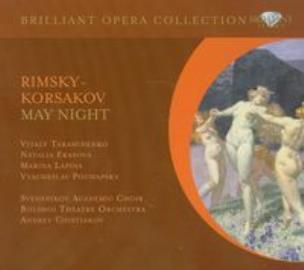- Regulamin
- Koszty dostawy
- Kontakt
- Dziś w ofercie 233 672 produkty
KSIĄŻKI
- Albumy
- Beletrystyka
- Biografie
- Dla dzieci i młodzieży
- Edukacja
- Ekonomia i biznes
- Ezoteryka
- Historia
- Informatyka
- Kalendarze
- Komiksy
- Kryminał i sensacja
- Kultura i sztuka
- Literatura faktu
- Literatura kobieca
- Literatura piękna
- Medycyna
- Nauka języków obcych
- Nauki humanistyczne
- Nauki przyrodnicze
- Nauki ścisłe
- Podręczniki
- Poradniki
- Prawo i administracja
- Przewodniki i podróże
- Psychologia
- Religia
- Sport
- Technika
- Zdrowie i uroda
ZABAWKI
- Artykuły dla niemowląt
- Bączki
- Bujaki i skoczki
- Ciągnij / pchaj
- Dla niemowlaka
- Grzechotki i gryzaki
- Karuzele i pozytywki
- Maty i centra zabaw
- Projektory i lampki
- Sortery i piramidki
- Zabawki
- Edukacyjne i kreatywne
- Figurki
- Klocki
- Lalki
- Pojazdy
- Pluszaki i maskotki
- Sport i rekreacja
- Zabawa w dom
- Zabawki drewniane
- Puzzle
- Do 200 elementów
- 201-500 elementów
- 501-1000 elementów
- Ponad 1000 elementów
- Puzzle 3D
ART. PAP
- Artykuły biurowe
- Artykuły piśmiennicze
- Bloczki i kartki samoprzylepne
- Dziurkacze
- Kalkulatory
- Nożyczki i nożyki
- Skoroszyty
- Teczki
- Wizytowniki
- Zszywacze
- Artykuły szkolne
- Akcesoria szkolne
- Modelowanie
- Notatniki i zeszyty
- Piórniki
- Plecaki i torby
- Pojemniki na śniadanie
- Pomoce naukowe
- Przybory matematyczne
- Przybory rysunkowe
- Upominki i gadżety
- Akcesoria do książek
- Artykuły balowe
- Breloki i zawieszki
- Drobiazgi, różności
- Kubki
- Oferta Świąteczna
- Papeteria, kartki i naklejki
- Skarpetki Many Mornings
- Upominki
GRY
MULTIMEDIA
- Audiobooki
- Beletrystyka
- Biografie i wspomnienia
- Dla dzieci i młodzieży
- Fantastyka
- Filozofia i religia
- Historia
- Literatura faktu i reportaż
- Poradniki
- Sensacja i kryminał
- Filmy DVD/BD
- Animowane
- Biograficzne
- Fantasy
- Horrory
- Komedie
- Romanse
- Science Fiction
- Sensacyjne / kino akcji
- Thrillery
- Muzyka CD
- Alternatywna
- Blues
- Dla dzieci
- Jazz
- Klasyczna
- Piosenka aktorska i poetycka
- Pop
- Rock
- Świąteczna i kolędy
- Akcesoria GSM
- Głośniki
- Kable i adaptery
- Klawiatury
- Myszy
- Słuchawki
PROMOCJE
ZDROWIE
LEGO

Rimsky-Korsakov: May Night
Wydawca:
Brilliant Classics
ISBN:
5028421940366
EAN:
5028421940366
Nośnik:
CD-Audio
oprawa:
Plastikowa
czas trwania:
2:03:40
format:
14.0x12.0cm
język:
angielski
Seria:
BRILLIANT OPERA COLLECTION
rok wydania:
2013
(0) Sprawdź recenzje
Opis produktu
Zasady bezpieczeństwa
Nikolai Rimsky-Korsakov (1844-1908) composed his comic opera May Night in 1878-9, at a time when he was fascinated in the stories for the supernatural and the fantastic. It was also at this time that he had been appointed to a teaching role at the St Petersburg Conservatory -- a role he thought himself ill prepared for. Much to the astonishment of his fellow composers and friends -- Borodin, Balakirev, and Mussorgsky he threw himself in to the study of counterpoint, writing canons, fugues -- all far removed from the spirit of Russian Nationalism in music he and his friends had championed. To show that he hadn't deviated from the path of music inspired by Russian folklore and culture, May Night, his second opera is perhaps his most 'Russian'.
Based on a story by Nikolai Gogol, May Night, or the Drowned Maiden, Rimsky uses Gogol's story virtually unaltered, writing his own recitatives and some of the texts to arias. This adaption of ordinary speech or dialogue from the written story gave the work a colloquial folk like feel. Many of the tunes in the opera are from a collection published in 1872 by Alexander Rubets of Ukrainian folk songs. Rimsky's orchestration is superb -- glittering and highly illustrative of the supernatural realm of the 'rusalki' and in places foreshadows the music Wagner wrote in act 2 of Parsifal for the depiction of Klingsor's Garden.
A footnote to the premiere at the Mariinsky Theatre in 1880 -- the role of Levko's tyrannical father was sung by Fyodor Stravinsky, who, two tears later would become the father of Igor Stravinsky....
Other information
- Recording made in 1995
- Rimsky's operatic masterpiece
- Booklet note essay
CENA:
25,35
zł
Cena detaliczna:
29,90 zł
15%
rabatu
Najniższa cena z ostatnich 30 dni: 25,35 zł
Produkt niedostępny
Uwaga!!!
Ten produkt jest zapowiedzią. Realizacja Twojego zamówienia ulegnie przez to wydłużeniu do czasu premiery tej pozycji. Czy chcesz dodać ten produkt do koszyka?


Wybierz wariant produktu
